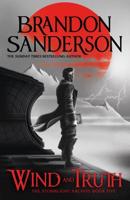Publisher's Synopsis
This historic book may have numerous typos and missing text. Purchasers can download a free scanned copy of the original book (without typos) from the publisher. Not indexed. Not illustrated. 1887 edition. Excerpt: ...the stage, partly to be commended, as by Euripides in his tragedies, partly to be ridiculed, as by Aristophanes in his comedies. Some have thought that the allusion is not to the performances on the stage, but to the sale Sa of the books of Anaxagoras at the orchestra. Cf. Schleiermacher ad loc. But as Forster well remarks, we never read of book sales there. See also Journal of Philology (English), vol. x, pp. 37, 38. 5. uXXair re nal, ic.r.X., especially when they are so absurd; literally, for other reasons and also (in particular) they being so absurd. 6. oiraxrl, thus entirely and absolutely. 8. "An-io-ros y -... So-ir. Cf. note on Sixmos i/it, 18, A. A. 13. toiKe... Siaireipwptva, for he seems like one hav-27 ing composed (i. e., he seems to have composed) as it were an enigma, testing the question, Whether will Socrates, the wise man forsooth, know, etc. In the earlier editions Kal is inserted between the two participles. But Plato often uses two or more participles without a connective, especially when, as here, the action expressed by one participle is preliminary to that expressed by the other--he seems to have composed as it were an enigma in order to test. Cf. Gorg.: rirpaxa iavTijv Siaveipao-a, viro&itra, K.r.x. = having divided herself into four parts and thus put on, or in order to put on, etc. For the use of the part, after iotKe, cf. G. 280; H. A. 981. The nom. would be possible. Compare note on vvoiba with the part. 21, B. 14. epov xapievri opAvov. yivao-na, though usually followed by the ace, sometimes takes the gen. in common with other verbs denoting mental state. Jelf, 485. 17. axrirep uv. Cf. note, 17, D. 20. 5... iyeiv, how it is clear to me that he is speaking thus, sc. contradictions. B. 23...."


























